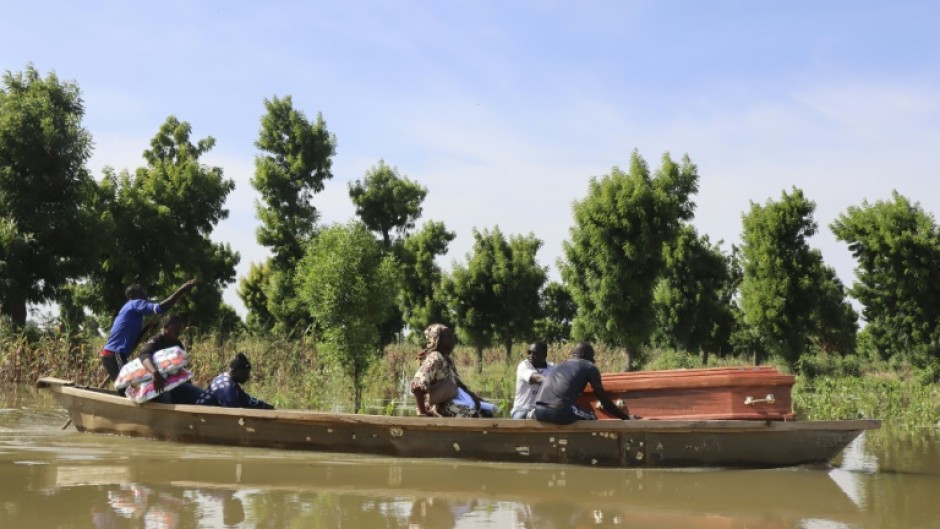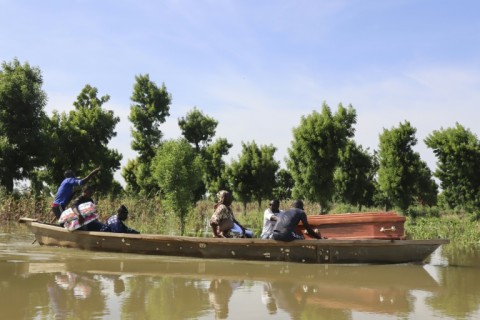
N'DJAMENA - First came the torrential rains, which burst river banks, swept away homes and upended hundreds of thousands of lives.
Now, in a further cruel twist, the floods that have struck Chad, one of the world's poorest countries, are hampering people from burying the dead.
Many cemeteries in the capital N'Djamena have been cut off by road, and others are awash, forcing mourners to look further afield for places where they can bury loved ones.
Yamadji Mobaye's young niece had died several days before, and now the 60-year-old was aboard a canoe on a swollen river, with her elaborate coffin perched perilously on top.
The boat was heading to Toukra cemetery, the city's biggest graveyard for Christians.
"It's hard when God calls one of us back during this time of floods. The canoe is our only chance of getting there," she said.
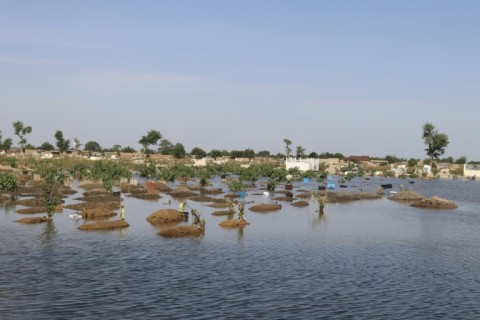
After a 20-minute ride, the large cemetery came into view. Around a quarter of the site, including many graves, was under water. Around 100 mourners were there, also brought by canoes.
"We paid 3,000 CFA francs ($4.50) for transporting the body, and the relatives who came with us paid 500 francs a head," said Mobaye. "For families who are poor, it's an even harder blow."
- State of emergency -
Floods fuelled by exceptional rains have struck 18 out of the 23 provinces in this vast, arid central African country, affecting more than a million people, according to the government.
Chad's leader, General Mahamat Idriss Deby, on October 20 declared a state of emergency and called for "friendly countries" to help it provide shelter, medical aid and basic needs.
N'Djamena has borne the brunt of the misery, with more than 98,000 people hit by the swollen waters of the Chari river, according to the UN's humanitarian agency, OCHA.
Water levels in some districts rose by up to five metres and swept aside makeshift defences erected by desperate inhabitants.
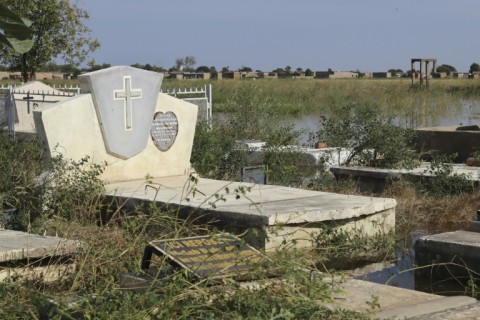
The death toll is unknown, although Deby said, "We should thank the Almighty who has so far spared us losses in human lives."
Ferryman Timothee Mbaississem, 52, said he had transported seven coffins on his canoe since the start of the week, and insisted he did not gouge on prices.
"I'm happy to take the money they give me without complaining," he said.
Another ferryman, sitting under a tree at the cemetery, said he did the trip for 500 francs, but "some of my colleagues are asking for exorbitant amounts."
The flooding was even worse at Ngonba cemetery, a few kilometres (miles) away. It was completely inundated.
"For burials, people can go to the Farcha cemetery," a bigger site west of the city, Amina Kodjiana, a city official, told AFP.
Chad is the world's third poorest country, according to the benchmark of the UN's Human Development Index.
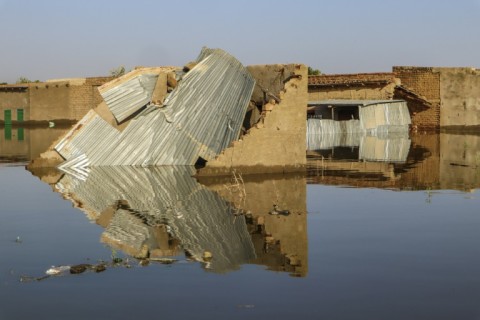
The World Bank says 42 percent of the 16 million population live in poverty, while the United Nations says 5.5 million need emergency humanitarian aid.
The rainy season in the Sahel typically runs from June to September and routinely claims lives.
But experts say this year's rainfall has been exceptional.
In neighbouring Niger, nearly 200 people died and a quarter of a million were affected.
"All our studies say that these rains can be linked with climate change," Katiellou Gaptia Lawan, head of Niger's national meteorological agency, told AFP earlier this month.
- by Djimet Wiche

